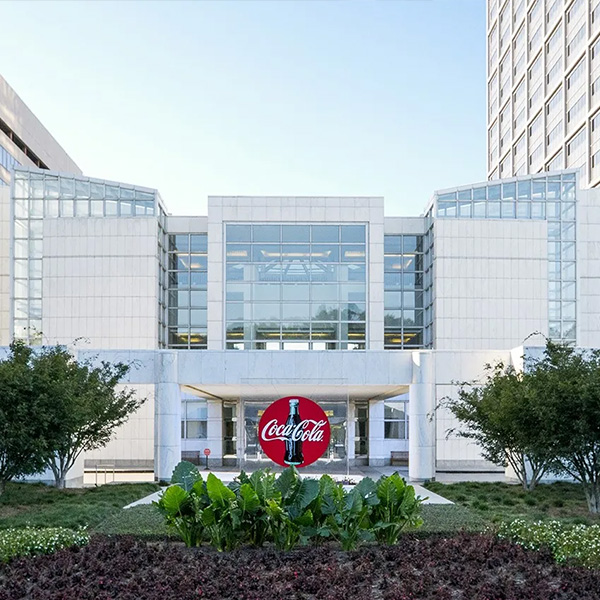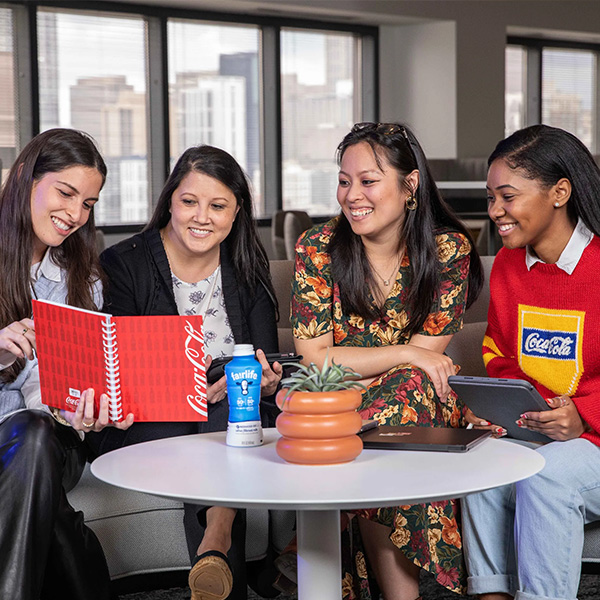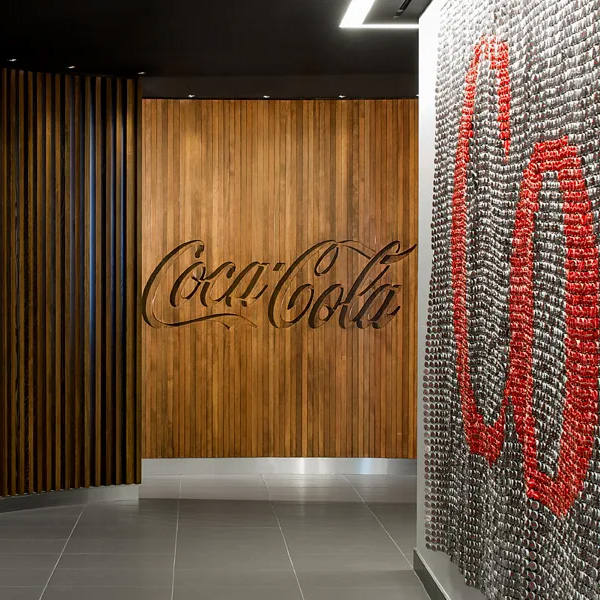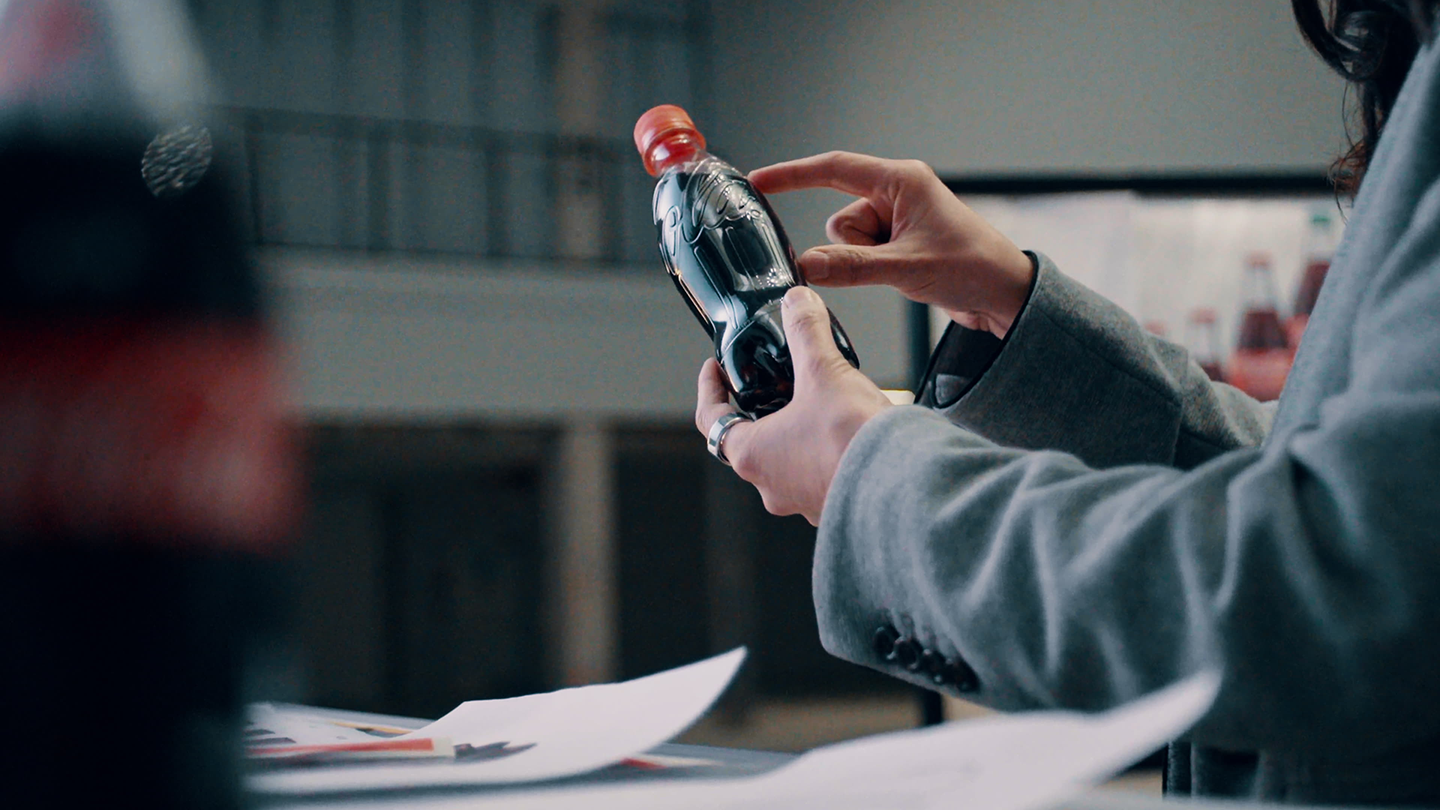
The Coca‑Cola Company is always innovating and exploring the future of best-in-class brands and experiences
05-09-2024
Innovation powers The Coca‑Cola Company’s approach to bring to market more of the great-tasting drinks people want in smart, responsible ways that positively impact our business, communities and planet.
The constant pursuit of innovation puts consumers at the heart of our initiatives and it extends across our business—from our ever-evolving portfolio of beverages and marketing transformation to operational processes and the programs and partnerships that drive our sustainability progress.
“Innovation is anything new that creates value,” explains John Murphy, President and Chief Financial Officer. “When you take on that mindset, you can apply it into all aspects of the business. Staying ahead of the curve requires constant invention and reinvention, with an understanding of what’s happening in the marketplace.”
In recent years, we’ve raised the bar for our innovation agenda with an intentional focus on strategic, data-driven experimentation and agility.

Bold Beverages, New Experiences
As a total beverage company, we are constantly evaluating and refreshing our lineup of drinks, from reducing sugar to introducing new offerings. Recent highlights include:
Debuting Flashlyte, an advanced hydration drink formulated with six electrolytes, in Mexico.
Expanding the Cappy juice platform, now available in Europe, Africa and the Middle East, with new reduced-sugar and vitamin-fortified varieties.
Introducing smartwater alkaline 9.5+ pH with antioxidant in North America.
Doubling sales of the Authentic Tea House lineup of unsweetened, cold-brewed teas in China.
Experimenting and expanding our footprint in the Alcohol Ready-to-Drink (aRTD) category. Recent launches include Jack Daniel’s & Coca‑Cola and Jack Daniel’s & Coca‑Cola Zero Sugar in Latin America, Europe, Asia and North America; Absolut Vodka & Sprite and Absolut Vodka & Sprite Zero Sugar in Europe; and Peace Hard Tea and Minute Maid Spiked in North America.
Our test-learn-scale approach to innovation includes exploring new ways to engage consumers through our marketing. We create authentic, culturally relevant experiences for our brands that revolve around consumer passions including music, gaming, food and sports. This means shifting our marketing investments towards digital, live and retail experiences, meeting our consumers where they are.
Coca‑Cola Creations introduces new flavors, designs and unexpected experiences that blend music, fashion and technology for fans to enjoy around the world. By tapping into emerging technologies, collaborating with artists and designers, and creating experiences across digital and physical worlds, the platform continues to infuse the iconic Coca‑Cola brand with new expressions of creativity and cultural connections allowing fans to experience the Real Magic of Coca‑Cola.
Coke Studio, which originated in Pakistan and has expanded to our top 40 markets, taps into consumers' passion for music. The platform uses packaging as digital portals to access Real Magic experiences.
We’re celebrating nearly 100 years of greatness as the longest-running partner of the Olympic Games. At the Olympic and Paralympic Games Paris 2024, we aim to refresh athletes, officials and fans with our wide product portfolio of beverages, including Coca‑Cola, Powerade, Fuze Tea and smartwater.
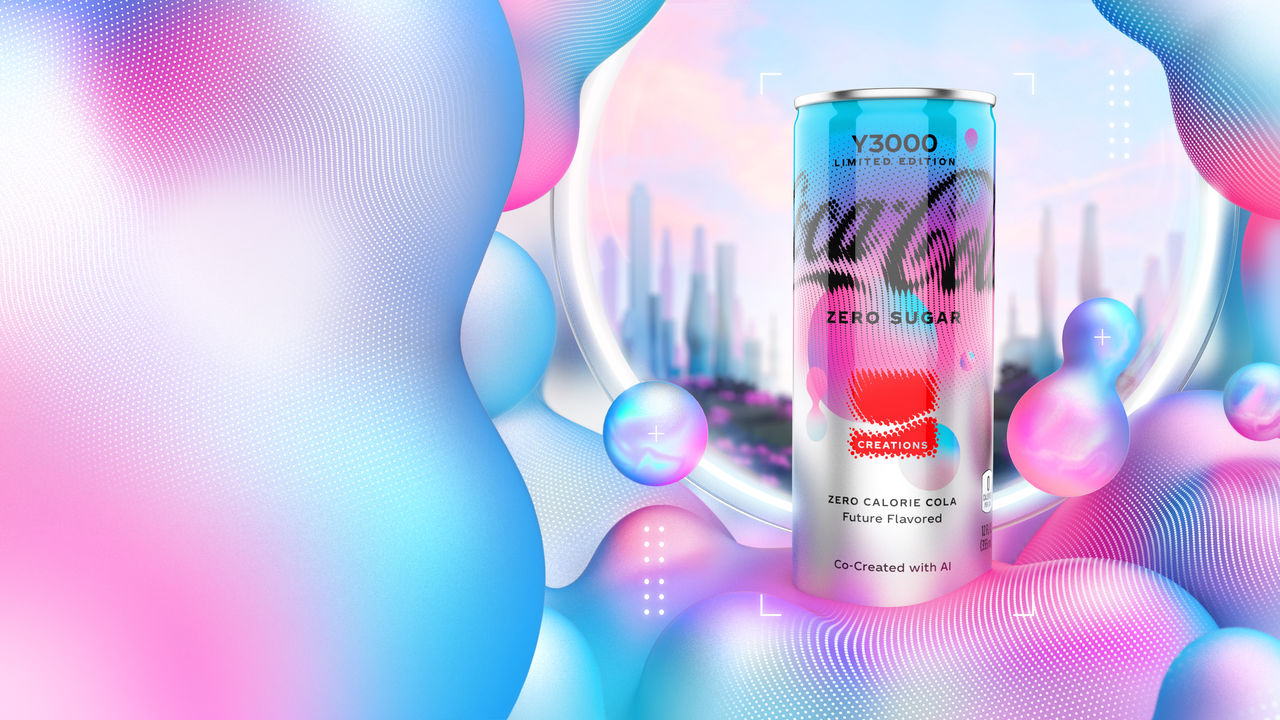
Using AI and Emerging Tech to Connect with Consumers
We are leading the most radical marketing transformation in our history to support our long-term growth agenda. Combined with the expertise of our people, we’re using AI and other emerging digital technologies to engage consumers with culturally relevant, experience-driven campaigns. It starts with metrics and goes to innovation, marketing effectiveness and efficiency.
We appointed our global agency network partner, WPP Open X, to manage end-to-end creative, media, data and technology across our brand portfolio in ~200 countries and territories.
Technology is at the heart of our transformation. In 2023, we became the first company to join a global services alliance launched by Bain & Company and OpenAI, developers of DALL-E and ChatGPT. We are committed to being at the forefront of AI experimentation, learning and implementation.
We are leveraging Generative AI to engage consumers through innovative campaigns, including:
Introducing Coca‑Cola® Y3000 Zero Sugar, the first futuristic Coca‑Cola flavor co-created with human and artificial intelligence. Part of the Coca‑Cola Creations lineup of fantasy flavors, the limited-edition drink was supported by an AI-powered digital activation and experiential takeover at the Las Vegas Sphere.
Launching an AI-powered card generator to support our global Coca‑Cola holiday campaign. Consumers in more than 40 markets reimagined iconic Coca‑Cola holiday images and sent personalized digital cards to loved ones.
Digital-driven marketing is fueling our company’s performance, serving as the “motor driving the top line and bottom line,” Chairman and CEO James Quincey told investors in October 2023.
Beyond marketing, we are exploring ways to leverage AI—from internal knowledge management and workflows, to customer service and ordering, to point-of-sale material creation.
.jpg)
Crafting Great-Tasting Beverages
Our Research and Development (R&D) teams leverage industry-leading capabilities and insights in taste and aroma science to create bolder and more successful innovations, including flavor breakthroughs for low- and no-sugar options.
The continued success of the recently reformulated Coca‑Cola Zero Sugar proves how superior taste drives demand.
Other recent innovations include the Aquarius sports drink in Japan, which delivers superior hydration via amino acids and electrolytes with zero sugars, and continued advancements to improve the taste and texture of fairlife’s high-protein Core Power, Nutrition Plan and Ultra-Filtered Milk offerings in North America.
We also use our technical expertise to launch groundbreaking equipment offerings—including the Coca‑Cola Freestyle fountain platform, Costa Express coffee dispensers and Coke&GO autonomous coolers—and sustainable packaging innovations including label-less and ultra-lightweight plastic bottles made with 100% recycled PET (rPET)*. *excludes cap and label
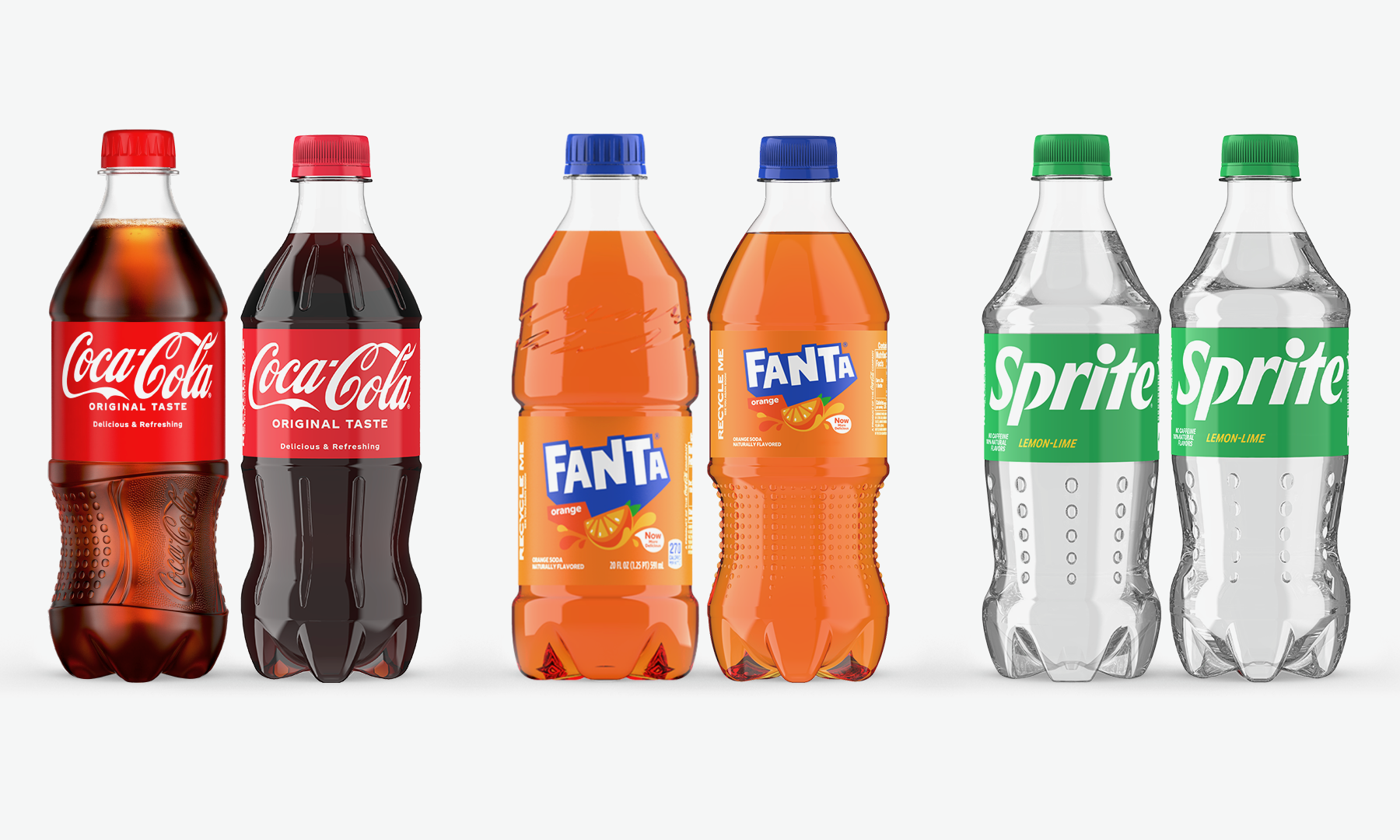
Sustainability
We continue to explore ideas for new technologies and innovation to help us achieve our sustainability goals, which focus on water, packaging, climate and agriculture. This includes innovating our packaging to help reduce waste and carbon emissions and designing solutions to help improve our water and energy use across our operations and value chain.
Our markets around the world are innovating in this space:
Lighter bottles and bottles made from recycled materials aim to minimize plastic use and help reduce carbon emissions. This includes new lightweight bottle designs across several products in the North America portfolio.
Label-less bottles help make recycling easier. Following the roll-out in Japan, China and South Korea, we have also trialed this innovation with Sprite in the UK.
We are exploring ways to use AI to automate the collection and analysis of data for watershed restoration work in India and sustainable agriculture programs in Türkiye among other opportunities.
